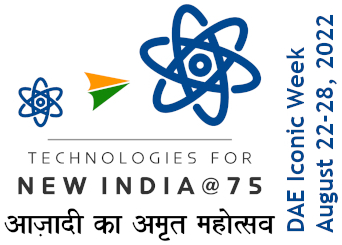Systems Biology Reveals New Molecular Pathways and Diseases in Microgravity
Researchers from SINP have unfolded new immunity and disease related molecular and genetic signatures, which are altered in human cells during space travel due to microgravity. The work indicates some new disease signatures including few types of cancer for the first time, which may help estimating risks and find solutions for long duration space travel. The work has been published this year (Scientific Reports | 6:25975 | DOI: 10.1038/srep25975). The team includes students, staff and faculty from SINP (Sayak Mukhopadhyay, Rohini Saha, Anbarasi Palanisamy, Madhurima Ghosh, Arijit Pal, Kathakali Sarkar & Sangram Bagh) along with two undergraduate students from Presidency University (Anupriya Biswas and Saheli Roy).
The microgravity in space exerts health hazards on astronauts, like reduced immunity, bone and muscle loss, cardiovascular and neurovestibular issues. The recent gene expression studies have identified only a handful of genes and a few pathways, which are perturbed by microgravity. However, ambitious mission like sending humans to Mars, requires a thorough genetic level understanding. Applying a set of advanced statistical tools, machine learning algorithm, and biological databases, SINP researchers have developed a systems biology pipeline and analyzed gene expression data from available human cell experiments in space flight, space station and earth based microgravity simulators. Encompassing almost all known human disease molecular pathways the systems biology pipeline has identified hundred of new molecular pathways perturbed in microgravity, irrespective of cell types and experiments. Those pathways show strong signature of induction of several diseases, which were not reported before. This includes few types of cancer including leukemia and liver cancer. On the brighter side, the results suggest that anticancer drugs may respond better in microgravity. In addition, microgravity may reduce inflammation, autoimmune disease, asthma and diabetes.
Apart from finding the new pathways, a machine-learning algorithm (Non-negative matrix factorization, which has been used successfully as a face recognition algorithm) coupled with consensus clustering has been used on global gene expression data to extract a set of mathematically stable patterns in gene expression across the dataset. The findings identified a set of distinct gene networks and suggest how the altered functions in microgravity are connected at the gene regulatory level. This integrated systems level picture may help designing new microgravity experiments, assessing potential risks for long duration space travel and developing new space medicine.

Figure 1: GSEA analysis of human cell during microgravity exposure. (a) Genome wide expression profile of E-GEOD-4209 for three biological replicates in microgravity and normal gravity. The heatmap represents ranked genes, which is created by signal-to-noise matric (fold change in expression between microgravity and normal gravity divided by the standard deviation in gene expression among the replicates). (b) Enrichment score of four representative, statistically significant pathways from four different gene set modules. The top and bottom figures represent upregulated and downregulated pathways respectively. The heatmap of the ranked gene list is shown at the bottom of each pathway. The black lines within the heatmap represent the position of the pathway genes in that ranked list.


Figure 1: GSEA analysis of human cell during microgravity exposure. (a) Genome wide expression profile of E-GEOD-4209 for three biological replicates in microgravity and normal gravity. The heatmap represents ranked genes, which is created by signal-to-noise matric (fold change in expression between microgravity and normal gravity divided by the standard deviation in gene expression among the replicates). (b) Enrichment score of four representative, statistically significant pathways from four different gene set modules. The top and bottom figures represent upregulated and downregulated pathways respectively. The heatmap of the ranked gene list is shown at the bottom of each pathway. The black lines within the heatmap represent the position of the pathway genes in that ranked list.

Figure 2. Genetic Networks (a–f) represent mathematically stable NMFC clusters from various datasets of downregulated genes from canonical pathways in microgravity.
The work has been covered in Nature India (Link: http://www.natureasia.com/en/nindia/article/10.1038/nindia.2016.72) and Times of India (Link: http://timesofindia.indiatimes.com/life-style/health-fitness/health-news/Anti-cancer-drugs-may-respond-better-in-zero-gravity/articleshow/52727695.cms).
The work has been covered in Nature India (Link: http://www.natureasia.com/en/nindia/article/10.1038/nindia.2016.72) and Times of India (Link: http://timesofindia.indiatimes.com/life-style/health-fitness/health-news/Anti-cancer-drugs-may-respond-better-in-zero-gravity/articleshow/52727695.cms).




